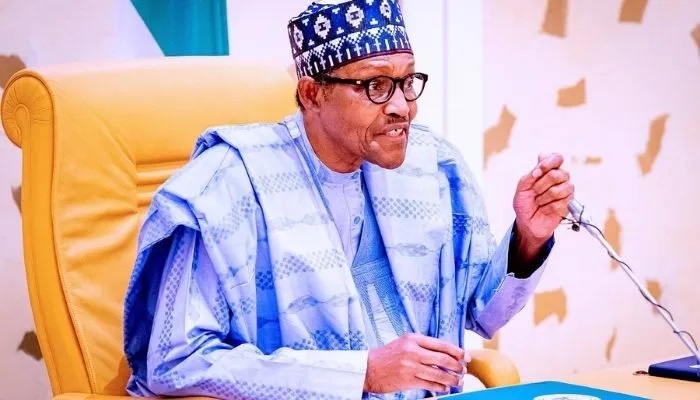Buhari Expresses Reservations on NASS Increment Of Budget, Signs Friday
By ‘Tunde Babalola, Abuja
Indications have emerged that President Muhammadu Buhari will on Friday, December 31, 2021, give assent to the 2022 appropriations bill, recently passed into law by the National Assembly, though he was not pleased with the jerking up of the budget.
Both the Senate and House of Representatives last week passed the appropriations bill into law, after raising the original estimates by about N730 billion, from the N16.39 trillion presented to them by the president on October 17, 2021.
Sources at the Presidential Villa said on Tuesday that although the president had expressed his displeasure over the increase, he is prepared to sign the budget into law on Friday, the last day of the year, to avoid delays in its implementation.
The Federal Government since the inauguration of the 9th National Assembly has enjoyed early passage of the national budget. This has restored the January-December budget cycle, a feat that took several years to achieve.
Under the 2022 budget, N869.6 billion is for statutory transfers, N6.9 trillion for recurrent expenditure, N5.46 trillion for capital expenditure while debt servicing will gulp N3.8 trillion.
The two chambers of the National Assembly had also raised the crude oil benchmark from $57 to $62 as well as approved a budget deficit of N98 billion in the Medium-Term Expenditure Framework/Fiscal Strategy Paper (MTEF/ FSP).
Under the MTEF/FSP submitted by the Federal Government, the budget deficit of N6.26 trillion, representing 3.39 percent of estimated Gross Domestic Growth (GDP) to be financed mainly by new borrowings totaling N5.01 trillion was proposed.
Under the 2922 budget, oil production estimate is pegged at 1.88 million barrels per day; while the exchange rate is N410.15 per US dollar; and the projected GDP growth rate of 4.2 percent as well as 13 percent inflation rate as proposed by the Federal Government.
The House in the passed budget approved aggregate revenues/inflow of N10.7 trillion, out of which the share of federation revenues is put at N5.5 trillion; independent revenues is N2.2 trillion; dividends N195.7 billion; aid and grants N63.3 billion; special funds/accounts-receipts N300 billion and GOEs (Net of operating surplus) is N1.7 trillion.
The National Assembly approved funds for the various government agencies, including the National Judicial Council which was allocated N120 billion; Niger Delta Development Commission – N102.783 billion; Universal Basic Education – N112.287 billion; National Assembly – N139 billion; Public Complaints Commission – N11.190 billion; Independent National Electoral Commission (INEC) – N219.544 billion; National Human Right Commission – N4.500 billion; North East Development Commission – N48.076 billion; Basic Health Care Fund – N56.144 billion and National Agency for Science and Engineering (NASENI) – N56.144 billion, respectively.
The National Assembly budget breakdown showed that N33.267 billion is for Senate; N51.995 billion for House of Representatives; N7.734 billion for National Assembly Service Commission; N9.602 billion for Legislative Aides; N118.970 million for Senate Public Account Committee; N142.764 million for House Committee on Public Account; N8.308 billion for General Services; N7.374 billion for National Institute for Legislative and Democratic Studies; N471.335 million for Service Wide Vote; N581.848 million for Office of Retired Clerks and Permanent Secretaries; N125 million for Senate Committee on Appropriations and N165 million for House Committee on Appropriations.
The National Assembly also budgeted N100 billion for Zonal Intervention Projects; N10 billion for National Assembly liabilities; N300 million for National Assembly e-Library; N139 million for National Assembly Dashboard; N1 billion for constitution review and N20 billion for Special Intervention projects.





